The Senate CIA Torture Report. Dick Cheney: "The Report is Full of Crap"
http://www.globalresearch.ca/the-senate-cia-torture-report-dick-cheney-the-report-is-full-of-crap-highlights-executive-summary/5419604
The US Senate Select Committee on Intelligence has released its report on the CIA's "Detention and Interrogation Program" . The complete document consists of a 6000 page report, which remains classified.
The committee has released a 525-page unclassified summary version for public distribution as well as the executive summary of the full 6000 page report.
We bring to the attention of our readers the 525 page version (pdf download) as well as the executive summary of the Select Committee on Intelligence 6000 page report.
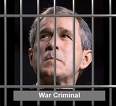 Below are screen shots of the title page, the Table of Contents and a sample of a "heavily redacted" page.
Below are screen shots of the title page, the Table of Contents and a sample of a "heavily redacted" page.
Scroll down for an interview with Dick Cheney, who says the "Report is Full of Crap." But he also says almost verbatim: "We Did it".
He accepts responsibility for the torture program on behalf of George W. Bush.
His statements can be used against him in a court of law. He invokes 9/11.
"we asked the agency to go take steps and put in place programs that are designed to catch the bastards that killed 3,000 of us on 9/11 and to make sure it didn't happen again."
We also have to work sort of the dark side if you will, we have got to spend time in the shadows in the intelligence world. It's going to be vital for us to use any means that are disposable — at our disposal basically to achieve our objective.
….
BAIER: The end?
You have a lot of critics, some of them say that you should be behind bars.
Colonel Wilkerson who worked for Secretary Powell, said we all have to wear the taint Richard Bruce Cheney brought down on us with his full- throated endorsement of inhuman and evil methods of causing pain, humiliation and harm to other human beings. It's wrong that there's no consequences for those who perpetrated it and it's wrong that Cheney isn't languishing in a privatized prison somewhere.
CHENEY But remember, the terrorists were not covered by the Geneva Convention. They were unlawful combatants. And under those circumstances, they were not entitled to the normal kinds of courtesies and treatment you would accord to those. Nonetheless, the people we captured, especially the folks that went down to Guantanamo have been treated very well.
9/11 is Cheney's blanket justification for extensive crimes against humanity.
Amply documented, a large number of the detainees were innocent civilians.
In this interview Cheney provides statements which confirm the criminal nature of the Bush-Cheney administration.
"The report is full of crap."
"I have no sympathy for them [the detainees]."
"How nice do you want to be to the murderers of 3,000 Americans on 9/11?"
"I'd do it again in a minute."
The CIA did "a hell of a job and they deserve our gratitude."
The end "absolutely" justified the means.
We also have to work sort of the dark side if you will, we have got to spend time in the shadows in the intelligence world. It's going to be vital for us to use any means that are disposable — at our disposal basically to achieve our objective.
Mr. Cheney, Please tell us Who was behind 9/11?
Miranda Warning. Does it apply to Dick Cheney's Statements on Network TV?
"Anything you say [e.g. on Fox News] can and will be used against you in a court of law."
Michel Chossudovsky, December 12, 2014
* * *
Below are selected highlights
To consult the full 525 page report
http://www.intelligence.senate.gov/study2014/sscistudy1.pdf
SCROLL DOWN FOR FULL CHENEY INTERVIEW
FOX SPECIAL REPORT WITH BRET BAIER 6:00 PM EST, December 10, 2014 Wednesday
BRET BAIER, FOX NEWS POLITICAL ANCHOR: This is a Fox News Alert. I'm Bret Baier in Washington.
Joining us now, live to discuss this report is former Vice President Dick Cheney. Mr. Vice President, thanks for being here.
DICK CHENEY, FORMER VICE PRESIDENT OF THE UNITED STATES: Good evening — Bret.
BAIER: First of all, your overall impression to this report, what's in it and its release?
CHENEY: Well, I think it's a terrible piece of work, basically, it seems to me it's deeply flawed. They didn't bother to interview key people involved in the program. And I think that it's sort of a classic example which you see too often in Washington where a group of politicians get together and sort of throw the professionals under the bus. We have seen it happen before, I can remember, in Iran contra.
What happened here was that we asked the agency to go take steps and put in place programs that are designed to catch the bastards that killed 3,000 of us on 9/11 and to make sure it didn't happen again. And that's exactly what they did and they deserve a lot of credit, not the kind of condemnation that they're receiving from the Senate Democrats.
BAIER: The Feinstein Report suggests that President Bush was not fully briefed on the program and was deliberately kept in the dark by the CIA.
CHENEY: Not true – didn't happen. Read his book, he talks about it extensively in his memoirs. He was in fact an integral part of the program. He had to approve it before we went forward with it.
Full video interview on Fox News
BAIER: Was there ever a point when you believe you knew more about the program and how the U.S. government was interrogating than the President did?
CHENEY: I'm not quite sure how to answer that. I mean there were lots of things I read while he was doing other things. He had a much broader portfolio than I did and I spent a lot of my time just on national security. But I think he knew everything he needed to know and wanted to know about the program. There's no question –
BAIER: What he needed to know — I mean did he know the details? 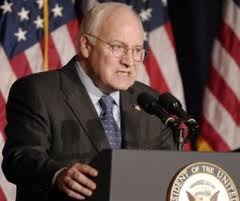
CHENEY: I think he knew certainly the techniques that we did discuss the techniques. There's nothing — there was no effort on our part to keep him from that. He was just as with the terrorist surveillance program. On the terrorist surveillance program, he had to personally sign off on that every 30 to 45 days. So the notion that the committee's trying to peddle it, somehow the agency was operating on a rogue basis, and we weren't being told or the President wasn't being told is just a flat-out lie.
BAIER: I mean the reports suggest it was four years before he –
CHENEY: It's not true.
BAIER: 2006.
CHENEY: Read his book. He talks about first with respect to the detention program and then with respect to the enhanced interrogation program. It started in the summer of '02 and he was fully informed.
BAIER: "New York Times writes it this way about the report. "When told about one detainee being chained to the ceiling of his cell, clothed in a diaper and forced to urinate and defecate on himself, even a president known for his dead or alive swagger expressed discomfort — true?
CHENEY: I don't have any idea. I have never heard of such a thing.
Bret – I guess partly what really bugs me as I watch all this process unfold is the men and women of the CIA did exactly what we wanted to have them do in terms of taking on this program. We said we have got to go use enhanced techniques if we're going to find out. We've got Khalid Sheikh Mohammed who was the mastermind of 9/11, who has killed 3,000 Americans, taken down the World Trade Center, hit the Pentagon, would have taken out the White House or the Capitol Building if in fact it hadn't been on for the passengers on United 93.
He is in our possession. We know he's the architect. What are we supposed to do kiss him on both cheeks and please, please tell us what you know? Of course not. We did exactly what needed to be done in order to catch those who were guilty on 9/11 and to prevent a further attack and we were successful on both parts and I think if I –
BAIER: This report says it was not successful.
CHENEY: The report's full of crap — excuse. I said hooey yesterday and let me use the real word.
BAIER: You're on cable.
CHENEY: It's ok, you can bleep it.
BAIER: You're saying that this led to actionable intelligence?
CHENEY: Absolutely. Look at the statement by the former directors and deputy directors of the CIA issued just within the last 24 hours. It did in fact produce actionable intelligence that was vital in the success of keeping the country safe from further attacks.
BAIER: Mr. Vice President, some of the tactics though described in this report are horrifying. I mean is there anything that U.S. officials/interrogators are alleged to have done that you would consider torture?
CHENEY: I don't know all the allegations that are out there, torture was something we very carefully avoided. One of the reasons we went to the Justice Department on the program was because we wanted them to tell us, where's the line legally between what's acceptable and what isn't? And they did, that's what came forth in the legal opinion that we got before proceeding with the program, Bret.
This is in terms of there being some problems in the program — there may well have been. But I don't think they represented — the Senate report represents the truth of what actually happened. They put together a report without ever talking to anybody who was involved in the program.
BAIER: But at one point this report describes interrogators pureeing food of one detainee and inserting it into his anus — something agency called "rectal rehydration". I mean is that torture?
CHENEY: I don't know anything about that specific instance. I can't speak to that. I guess the question is what are you prepared to do in order to get the truth about future attacks against the United States? Now, that was not one of the authorized or approved techniques, there were 12 of them, as I recall. They were all techniques that we used in training on our own people — even waterboarding.
People have been very concerned about waterboarding, calling it torture. First of all it was not deemed torture by the lawyers, and secondly it worked. And in fact that prevented — provided us the information we needed to prevent future attacks.
BAIER: How intimately involved were you involved in the legal process of setting up that justification? In other words, the frame for torture was narrowed in these legal decisions, a memo in August 2002 that essentially reframed Geneva rules on torture, and said the President had a lot more authority? You were intimately involved.
CHENEY: Strongly supportive of the program, strongly supportive of the opinions coming out of the Justice Department. The work that was done was, I think absolutely essential, absolutely crucial. And I guess the thing that always struck me was how careful the agency was in coming forward and saying yes, we can do the following but we need authorization. We need a legal opinion out of the Justice Departmentabout what's copacetic, what's legitimate. And we need the approval of the President of the United States and the National Security Council. And they got both and they did a hell of a job.
BAIER: But you rewrote the justification –
CHENEY: I didn't rewrite the justification, the lawyers wrote it in the office of legal counsel and the Justice Department.
BAIER: You had an intimate role in –
CHENEY: I am strongly supportive of the program. I didn't read the opinion and say you've got to change this and change that, but my job as vice president who was actively involved in the national security area was to push to get programs like this in place which in fact the CIA said they could produce better results if they had more authority. We got them that authority.
BAIER: You had one detainee, Gul Rahman, who died in captivity in November 2002.
CHENEY: 3,000 Americans died on 9/11 because of what these guys did. And I have no sympathy for them. I don't know the specific details, I'm sure there were instances cited in the report, I haven't read the report. But I know for a fact –
BAIER: Now wait — you haven't read it?
CHENEY: 6,000 pages — no, not yet.
BAIER: No, but how about 500 –
CHENEY: I've seen part of it — I read summaries of it.
I keep coming back again to the basic fundamental proposition — Bret. How nice do you want to be to the murderers of 3,000 Americans on 9/11?
BAIER: So what do you say to the people who say Americas is better than these methods? That John McCain takes to the Senate floor yesterday and gives a pretty impassioned speech.
CHENEY: I saw it –
BAIER: Take a listen to a piece of it and then I'll have your react to it.
(BEGIN VIDEO CLIP)
SEN. JOHN MCCAIN (R), ARIZONA: I dispute wholeheartedly that it was right for them to use these methods, which this report makes clear, were neither in the best interests of justice, nor our security, nor the ideals we have sacrificed so much blood and treasure to defend. We are always Americans — and different, stronger, and better than those who would destroy us.
(END VIDEO CLIP)
BAIER: Your reaction to that, sir.
CHENEY: My reaction to that John is that John and I had a fundamental disagreement about the program. I think that what needed to be done was done. I think we were perfectly justified in doing it and I'd do it again in a minute.
BAIER: Mr. Vice President, if you'll stick around past the break –
CHENEY: I will.
BAIER: — a few more questions.
If you have a question for Vice President Cheney let me know at facebook.com/BretBaierSR or on Twitter @BretBaier, you can use the hashtag "SpecialReport". We'll use some of them in this next segment — so type fast.
More with Vice President Cheney after a quick break.
BAIER: We are back with former Vice President Dick Cheney. Mr. Vice President, defenders of the program and of you say people forget the prism in which you were dealing with post 9/11. Days after that attack you told the late Tim Russert this.
(BEGIN VIDEO CLIP)
CHENEY: We also have to work sort of the dark side if you will, we have got to spend time in the shadows in the intelligence world. It's going to be vital for us to use any means that are disposable — at our disposal basically to achieve our objective.
(END VIDEO CLIP)
BAIER: So Mr. Vice president we have been attacked, I mean there's Boston and Fort Hood and other attempts but not a spectacular attack –
CHENEY: Not a mass casualty like 9/11.
BAIER: — since 9/11.
CHENEY: Right.
BAIER: So did the ends justify the means?
CHENEY: Absolutely.
BAIER: No doubt in your mind?
CHENEY: I have no doubt in my mind. I'm totally comfortable with it.
Bret, I think you've got to remember partly what was going on as well too during that period of time. We had reporting that al Qaeda was trying to get their hands on nuclear weapons; that they had been dealing with Pakistanis who after all have nuclear weapons. We had the anthrax attacks that went on here at home. There was every reason to expect there was going to be a follow-on attack.
And from our perspective, if you were sitting in my chair, the President's chair, our job was to keep the country safe and secure and go get those guys who hit us on 9/11. That's exactly what we did. We did what we felt was necessary. The professionals in the intelligence community especially at the CIA did one hell of a job and they deserve our gratitude.
BAIER: You've been supportive of the Obama administration's use of drone — one of the few things you're supportive of the Obama administration on –
CHENEY: That's a fair statement.
BAIER: — to take out terrorists. Do you find it disingenuous — their indignation about these techniques while they're not interrogating many terrorists at all, they're killing them in these strikes?
CHENEY: Well, if — we started the drone program and I think under certain circumstances, depending on the target and so forth, it's the right thing to do. The thing that's worrisome is they are not capturing anybody. They don't have an interrogation program.
If they got to Zawahiri tomorrow, the current head of al Qaeda, what would they do with him? I'm perfectly happy to see him dead but he's a very valuable source of information and intelligence. I think we need first class intelligence programs. I think that's what we have with respect to enhanced interrogation program with the approval of the President and the National Security Council and the lawyers in the Justice Department. It's the right thing to do.
BAIER: Sheryl Shelly writes on Facebook, "Had the tactics not been used, what would have happened? What events were prevented?"
CHENEY: Well, I think if you look at the example cited by the former directors, there was a perspective attack on the West Coast on the tallest building on the West Coast, with a hijacked aircraft that was thwarted by this. There are a number of examples that have been laid out over the years.
BAIER: I mean the President talked about it in 2006. Were there others beyond that?
CHENEY: Yes. Look specifically at the statement that was released today by the former directors — Mike Hayden, George Tenet, Porter Goss — where they lay out specifically those things that in their minds, and I think they're the experts were prevented by virtue of these techniques.
BAIER: Senator Udall took to the floor today saying a Panetta review says that is in your words hooey. He says that there's just not direct linkage.
CHENEY: Well, I don't know where he was on 9/11, but he wasn't in the bunker.
BAIER: The end?
You have a lot of critics, some of them say that you should be behind bars.
Colonel Wilkerson who worked for Secretary Powell, said we all have to wear the taint Richard Bruce Cheney brought down on us with his full- throated endorsement of inhuman and evil methods of causing pain, humiliation and harm to other human beings. It's wrong that there's no consequences for those who perpetrated it and it's wrong that Cheney isn't languishing in a privatized prison somewhere.
CHENEY: I guess you would have to call him not a fan.
BAIER: Not a fan.
CHENEY: Not a fan.
BAIER: Is there anything to the Geneva Convention, to the world rule of law on this?
CHENEY: Sure there is. But remember, the terrorists were not covered by the Geneva Convention. They were unlawful combatants. And under those circumstances, they were not entitled to the normal kinds of courtesies and treatment you would accord to those. Nonetheless, the people we captured, especially the folks that went down to Guantanamo have been treated very well.
The high-value detainees of al Qaeda after we finished with the interrogation program — all were transferred to al Qaeda, where many of them are today being treated very reasonably. We did what we needed to do to keep this country safe. That was our job and we did it. And I think the agency deserves a lot of credit for it.
BAIER: Last thing — do you think Jeb Bush is going to run?
CHENEY: I don't know.
BAIER: Do you have a favorite?
CHENEY: I have not signed on to anybody at this point. I don't want to start naming people or I'll leave somebody out. But I think it's going to be a great campaign year and I think we're going to win.
BAIER: Mr. Vice President, thanks for the time.
CHENEY: It's good to be here — Bret.
Highlights of the Report
The 6,000-page report produced 20 key findings. They are, verbatim from the unclassified summary report compiled by Wikipedia
- The CIA's use of its enhanced interrogation techniques was not an effective means of acquiring intelligence or gaining cooperation from detainees.
- The CIA's justification for the use of its enhanced interrogation techniques rested on inaccurate claims of their effectiveness.
- The interrogations of CIA detainees were brutal and far worse than the CIA represented to policymakers and others.
- The conditions of confinement for CIA detainees were harsher than the CIA had represented to policymakers and others.
- The CIA repeatedly provided inaccurate information to the Department of Justice, impeding a proper legal analysis of the CIA's Detention and Interrogation Program.
- The CIA has actively avoided or impeded congressional oversight of the program.
- The CIA impeded effective White House oversight and decision-making.
- The CIA's operation and management of the program complicated, and in some cases impeded, the national security missions of other Executive Branch agencies.
- The CIA impeded oversight by the CIA's Office of Inspector General.
- The CIA coordinated the release of classified information to the media, including inaccurate information concerning the effectiveness of the CIA's enhanced interrogation techniques.
- The CIA was unprepared as it began operating its Detention and Interrogation Program more than six months after being granted detention authorities.
- The CIA's management and operation of its Detention and Interrogation Program was deeply flawed throughout the program's duration, particularly so in 2002 and early 2003.
- Two contract psychologists devised the CIA's enhanced interrogation techniques and played a central role in the operation, assessments, and management of the CIA's Detention and Interrogation Program. By 2005, the CIA had overwhelmingly outsourced operations related to the program.
- CIA detainees were subjected to coercive interrogation techniques that had not been approved by the Department of Justice or had not been authorized by CIA Headquarters.
- The CIA did not conduct a comprehensive or accurate accounting of the number of individuals it detained, and held individuals who did not meet the legal standard for detention. The CIA's claims about the number of detainees held and subjected to its enhanced interrogation techniques were inaccurate.
- The CIA failed to adequately evaluate the effectiveness of its enhanced interrogation techniques.
- The CIA rarely reprimanded or held personnel accountable for serious or significant violations, inappropriate activities, and systematic and individual management failures.
- The CIA marginalized and ignored numerous internal critiques, criticisms, and objections concerning the operation and management of the CIA's Detention and Interrogation Program.
- The CIA's Detention and Interrogation Program was inherently unsustainable and had effectively ended by 2006 due to unauthorized press disclosures, reduced cooperation from other nations, and legal and oversight concerns.
- The CIA's Detention and Interrogation Program damaged the United States' standing in the world, and resulted in other significant monetary and non-monetary costs.
To consult the full report
| ||||

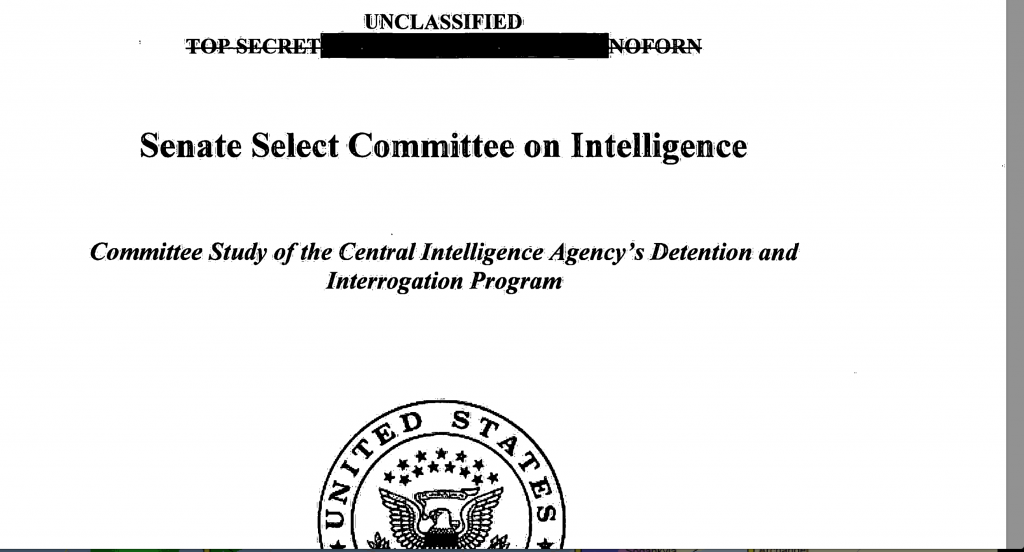

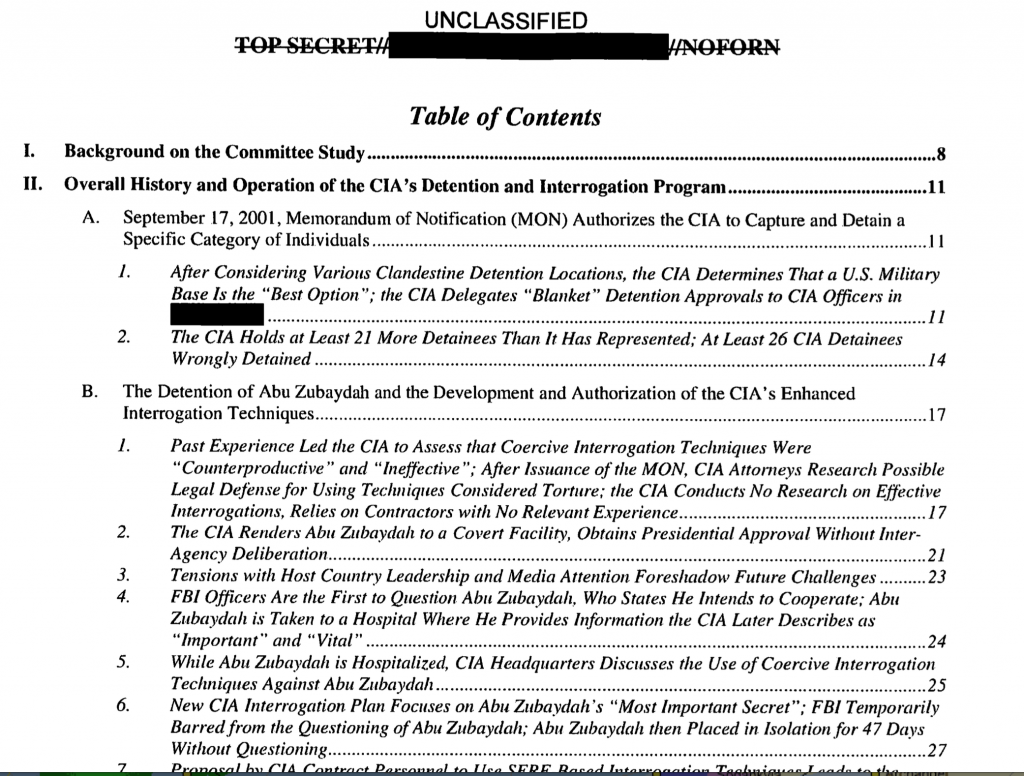
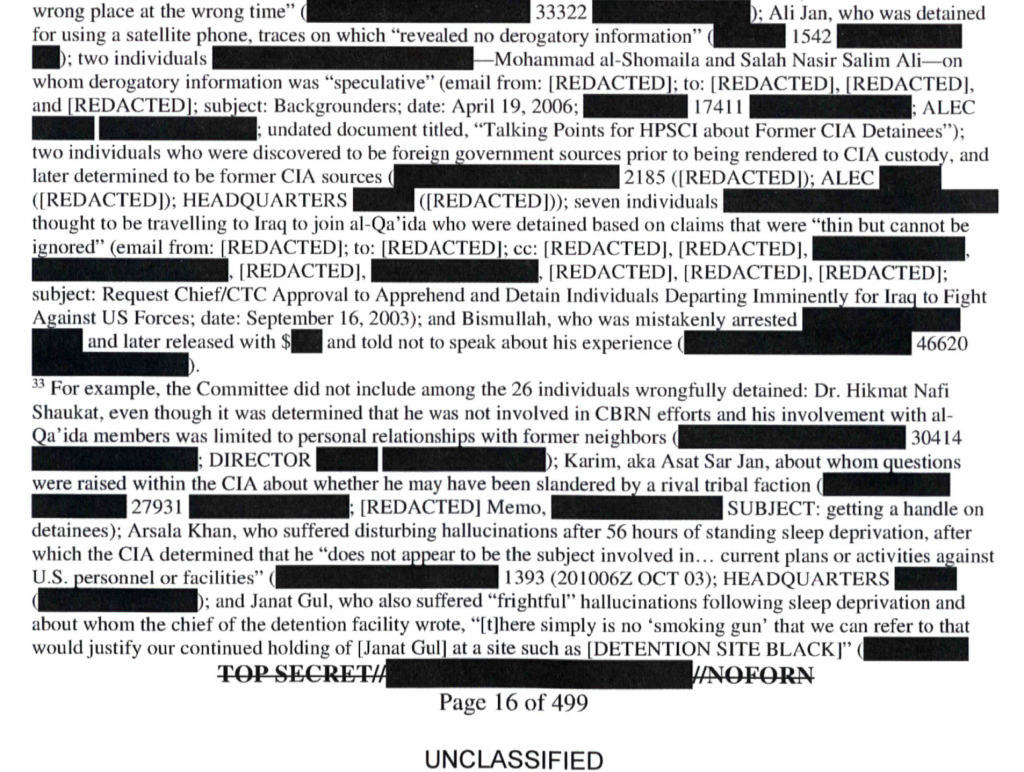







No comments:
Post a Comment
Note: only a member of this blog may post a comment.